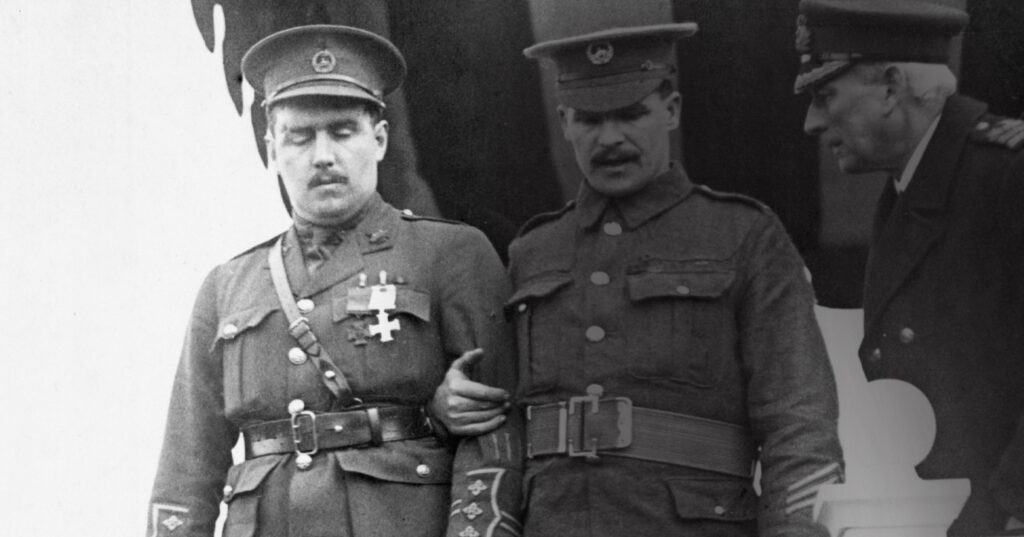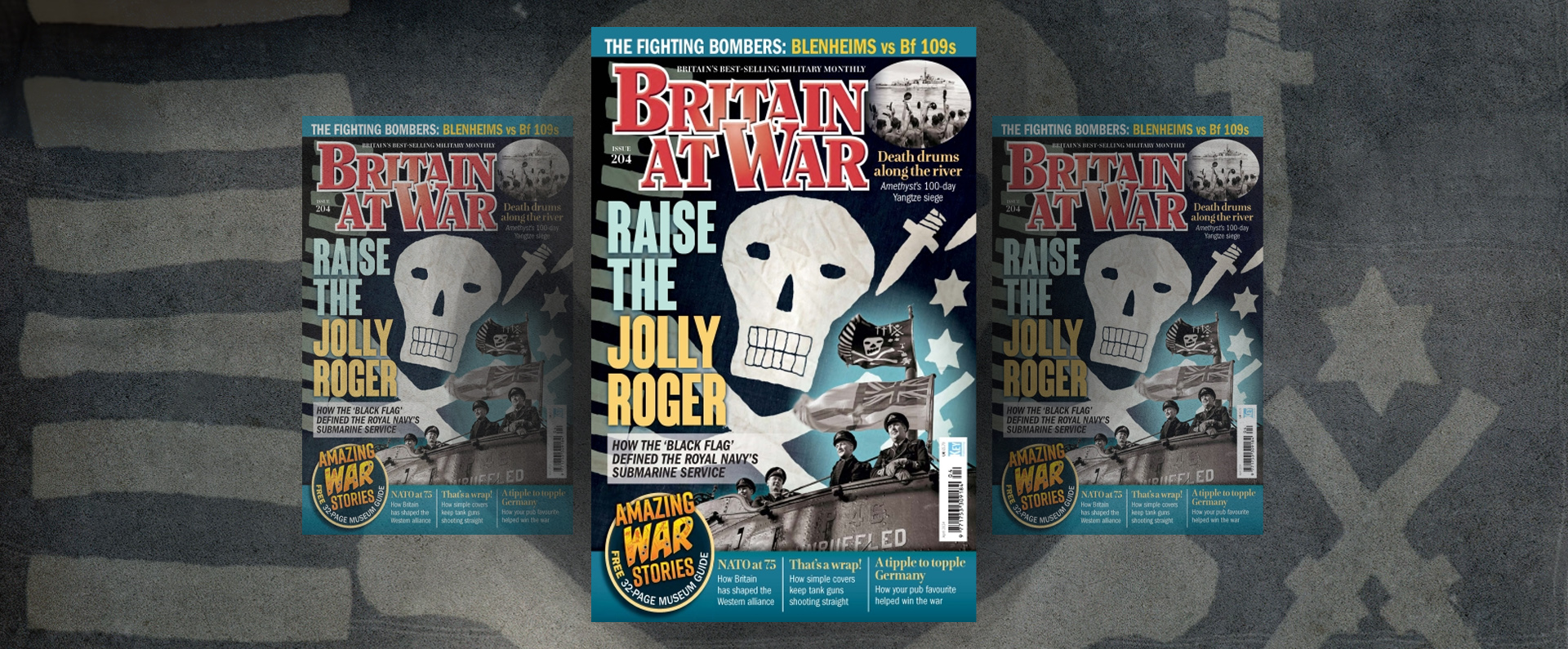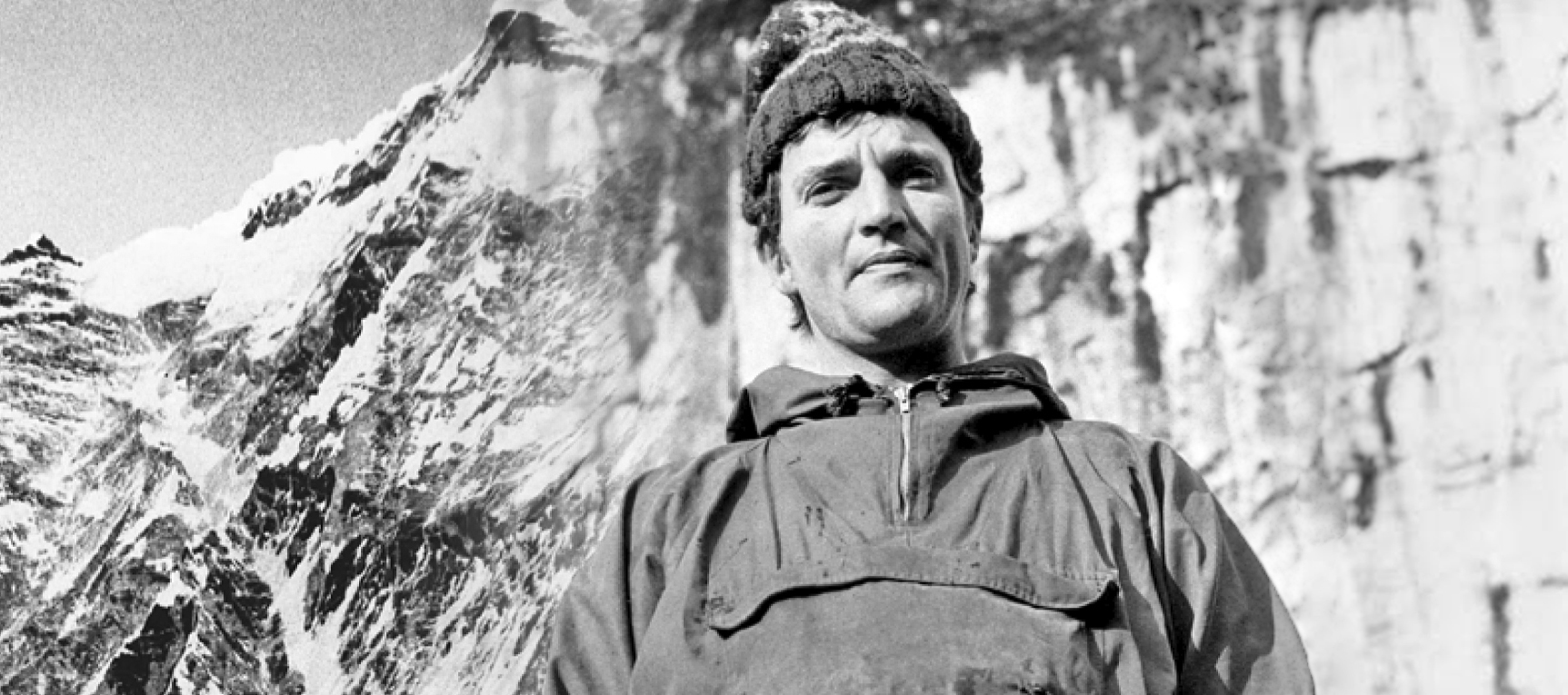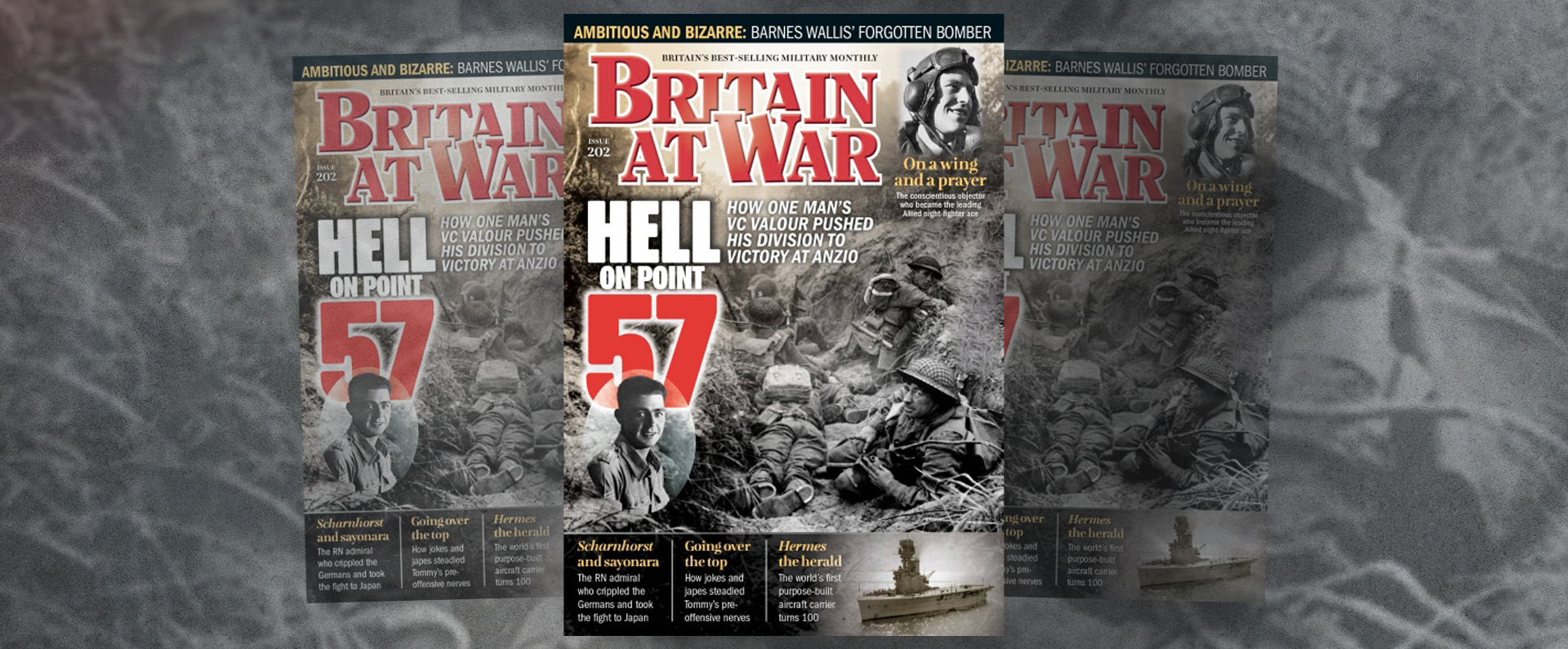
Published in Britain at War in September 2016.
Captain Angus Buchanan VC MC: boldness
Angus Buchanan, was born in Coleford, Gloucestershire, on 11 August 1894. His father, Peter, a doctor, had served as a major and company commander in the Glosters. Educated locally, at St John’s Boys School in Coleford and Monmouth Grammar School in Gwent, Angus Buchanan was a talented sportsman and captained his school rugby team.
He won a classical scholarship to Jesus College, Oxford, and played for the university’s A team during the 1913-14 season. However, after the outbreak of the First World War, he was commissioned as a temporary second lieutenant in the 4th Battalion, South Wales Borderers, in November 1914.
Buchanan left for Gallipoli on 28 June 1915 and was promoted to lieutenant on the same day. However, he was wounded soon after B Company landed at Suvla Bay on August 7 and sent to a hospital in Cairo, Egypt.
In early December 1915, and having been made a temporary captain, he returned to the peninsula and was awarded the Military Cross (MC) for his bravery in command of B Company, in trenches east of Gully Ravine on 7 January 1917. He was also twice Mentioned in Despatches for his services in the Gallipoli operations.
Buchanan arrived in Mesopotamia (now Iraq) on 4 March 1916 and it was there, on 5 April, that he took part in an action for which he received the VC, courageously saving two wounded comrades from no-man’s land. Buchanan, however, was wounded in the arm during the fighting against the Turks later on 5 April, the very day of his VC action.
Once again, Buchanan made a good recovery from his injuries, this time in India, only to be wounded a third time during fighting on 24 September 1916.
This wound came only two days before the official announcement of his VC in the London Gazette when the citation for his decoration read: “For most conspicuous bravery. During an attack an officer was lying out in the open severely wounded about 150 yards from cover. Two men went to his assistance and one of them was hit at once. Captain Buchanan, on seeing this, immediately went out and, with the help of the other man, carried the wounded officer to cover under heavy machine gun fire. He then returned and brought in the wounded man, again under heavy fire.”
The news was warmly received in his home town in Coleford: the bell in the church tower rang out in tribute and the announcement relating to his VC was also flashed up on the screen of his local cinema during a screening of the recently released film, The Battle of the Somme.
However, on 13 February 1917, Buchanan was wounded for a fourth time – on this occasion far more seriously than previously. A sniper’s bullet hit his head and he lost the sight in both his eyes. On 2 September 1917, as a result of his serious injuries, he relinquished his commission but retained his rank of captain. He was also Mentioned in despatches a third time and awarded the Russian Order of Vladimir, 4th Class, with swords.
Buchanan received his VC on 8 November 1917 at Durdham Down, Bristol. Thousands had gathered for the investiture by King George V of 127 recipients of gallantry medals and other honours.
At the investiture, Buchanan, then 23, had both his VC and MC pinned on his chest by the King. After shaking the King’s hand and saluting him, Buchanan was led down the steps and away from the royal dais by his guide, to loud cheering from the crowd.
After returning from the war, Buchanan attended St Dunstan’s hospital, supported by the charity Blind Veterans UK, where he learnt Braille and typewriting, and where a fund-raising postcard, costing 1d and bearing a drawing of him sporting his VC, was issued in his honour.
Next, Buchanan returned to Oxford where, despite still being blind, he studied for a degree in law and became a member of his college rowing eight. In those days, text books were not in Braille so they all had to be read to him by tutors and fellow students.
After qualifying as a solicitor, he started a practice in his home town with another solicitor though eventually he ran it on his own. Because of his disability, he did not accept criminal work and instead specialised in conveyancing and estate work. He also enjoyed accompanied walking holidays throughout the UK, Gilbert and Sullivan operas, and he was vice chairman of Coleford British Legion.
Buchanan’s friends said that he never complained abut his disability and remained both cheerful and determined to lead as normal a life as possible. He was considered to be the best salmon fisherman in the area and had a detailed knowledge of the River Wye. He also played bridge, even though he was unable to see the cards.
Buchanan died in Gloucester Royal Infirmary on 1 March 1 1944, aged 49. He was buried, with full military honours, at Coleford Church. His gravestone said he “died of old wounds”, having never recovered from his war-time injuries.
Two days after his death, an “obituary letter” appeared in The Times that began: “Few men have faced adversity with greater cheerfulness and patience than Angus Buchanan, the ‘blind VC’.”
Buchanan is commemorated at several locations: his name is listed at Harvard Chapel, Brecon Cathedral, Wales; there is a memorial tablet at St John’s Church, Coleford; the Buchanan Memorial recreation ground, purchased in 1919 as a tribute to the town’s hero, is named after him; and Buchanan Close in Monmouth, Gwent, is also named in his honour.
I purchased Buchanan’s medal group privately in 2013. I feel privileged to be the custodian of the gallantry and service medals belonging to such a courageous and spirited man.
Download a PDF of the original Britain at War article
For more information, visit:
LordAshcroftOnBravery.com


